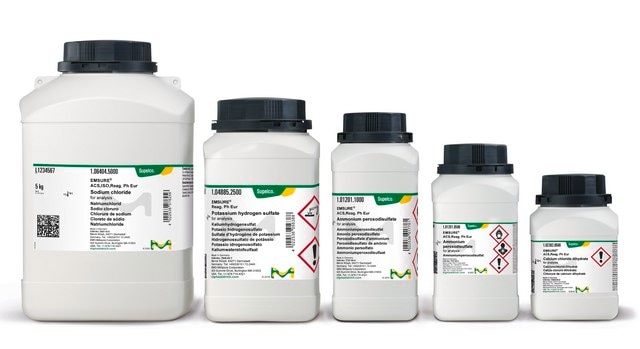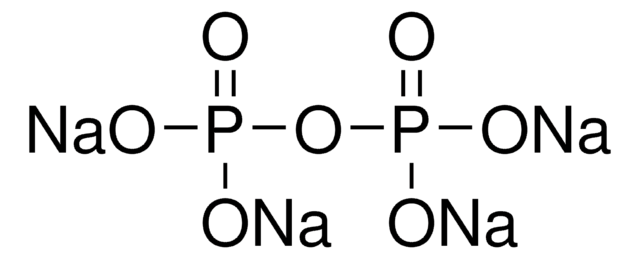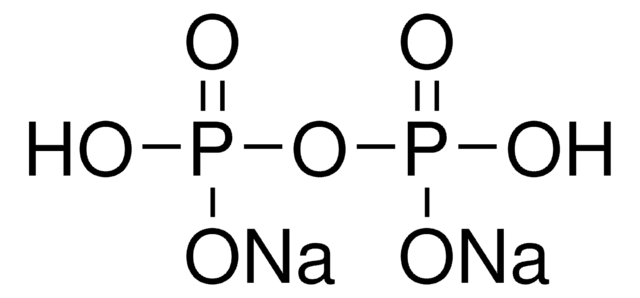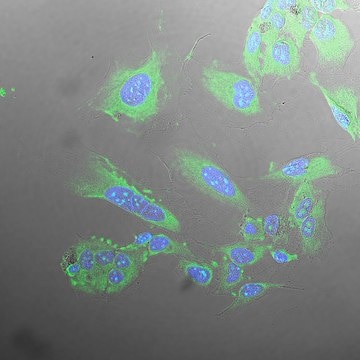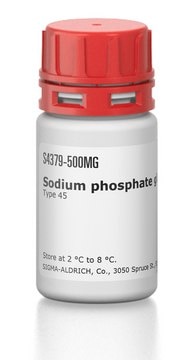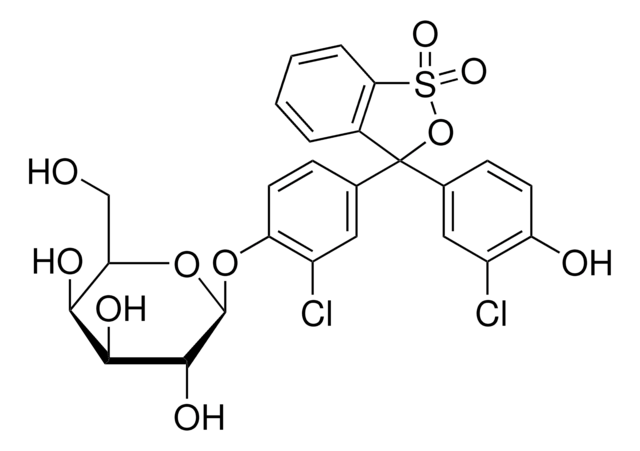SX0583
Sodium Hexametaphosphate
Synonym(s):
Sodium Hexametaphosphate, Hexasodium Metaphosphate
About This Item
Recommended Products
form
granular
Quality Level
concentration
≥65% P2O5
color
white
shipped in
ambient
storage temp.
room temp
InChI
1S/6Na.H6O18P6/c;;;;;;1-19(2)13-20(3,4)15-22(7,8)17-24(11,12)18-23(9,10)16-21(5,6)14-19/h;;;;;;(H,1,2)(H,3,4)(H,5,6)(H,7,8)(H,9,10)(H,11,12)/q6*+1;/p-6
InChI key
GCLGEJMYGQKIIW-UHFFFAOYSA-H
Related Categories
Application
- A reagent for the oxidation of aldehydes to carboxylic acids in the presence of H2O2 as an oxidant.
- A polymeric stabilizing and protecting agent in the synthesis of SHMP-stabilized gold nanoparticles (Au–SHMP) applicable in the development of biocompatible molecular probes.
- A capping agent in the synthesis of sterically stabilized luminescent nanoparticles of manganese doped zinc sulfide (ZnS:Mn2+).
- A stabilizing agent in the synthesis of barium sulfate nanoparticles by precipitation method.
Analysis Note
Color: White
Form: Granules
wgk_germany
WGK 1
flash_point_f
Not applicable
flash_point_c
Not applicable
Certificates of Analysis (COA)
Search for Certificates of Analysis (COA) by entering the products Lot/Batch Number. Lot and Batch Numbers can be found on a product’s label following the words ‘Lot’ or ‘Batch’.
Already Own This Product?
Find documentation for the products that you have recently purchased in the Document Library.
Our team of scientists has experience in all areas of research including Life Science, Material Science, Chemical Synthesis, Chromatography, Analytical and many others.
Contact Technical Service
